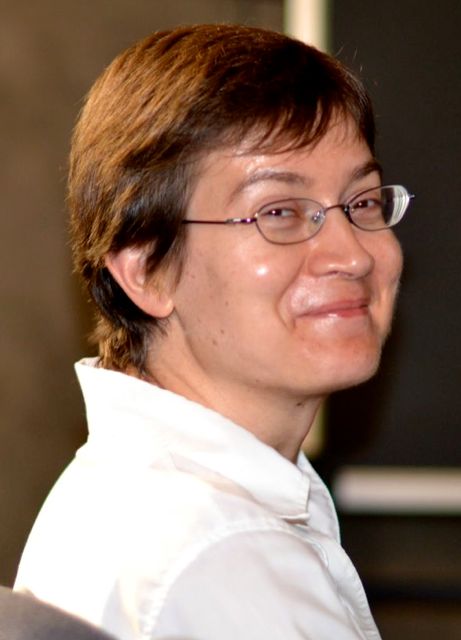Studying at the University of Verona
Here you can find information on the organisational aspects of the Programme, lecture timetables, learning activities and useful contact details for your time at the University, from enrolment to graduation.
Academic calendar
The academic calendar shows the deadlines and scheduled events that are relevant to students, teaching and technical-administrative staff of the University. Public holidays and University closures are also indicated. The academic year normally begins on 1 October each year and ends on 30 September of the following year.
Course calendar
The Academic Calendar sets out the degree programme lecture and exam timetables, as well as the relevant university closure dates..
| Period | From | To |
|---|---|---|
| I sem. | Oct 2, 2017 | Jan 31, 2018 |
| II sem. | Mar 1, 2018 | Jun 15, 2018 |
| Session | From | To |
|---|---|---|
| Sessione invernale d'esame | Feb 1, 2018 | Feb 28, 2018 |
| Sessione estiva d'esame | Jun 18, 2018 | Jul 31, 2018 |
| Sessione autunnale d'esame | Sep 3, 2018 | Sep 28, 2018 |
| Session | From | To |
|---|---|---|
| Sessione Estiva Lauree Magistrali | Jul 19, 2018 | Jul 19, 2018 |
| Sessione Autunnale Lauree Magistrali | Oct 18, 2018 | Oct 18, 2018 |
| Sessione Invernale Lauree Magistrali | Mar 21, 2019 | Mar 21, 2019 |
| Period | From | To |
|---|---|---|
| Christmas break | Dec 22, 2017 | Jan 7, 2018 |
| Easter break | Mar 30, 2018 | Apr 3, 2018 |
| Patron Saint Day | May 21, 2018 | May 21, 2018 |
| Vacanze estive | Aug 6, 2018 | Aug 19, 2018 |
Exam calendar
Exam dates and rounds are managed by the relevant Science and Engineering Teaching and Student Services Unit.
To view all the exam sessions available, please use the Exam dashboard on ESSE3.
If you forgot your login details or have problems logging in, please contact the relevant IT HelpDesk, or check the login details recovery web page.
Should you have any doubts or questions, please check the Enrollment FAQs
Academic staff
 maurizio.boscaini@univr.it
maurizio.boscaini@univr.it
 federico.busato@univr.it
federico.busato@univr.it
 mila.dallapreda@univr.it
mila.dallapreda@univr.it
Study Plan
The Study Plan includes all modules, teaching and learning activities that each student will need to undertake during their time at the University.
Please select your Study Plan based on your enrollment year.
1° Year
| Modules | Credits | TAF | SSD |
|---|
2° Year activated in the A.Y. 2018/2019
| Modules | Credits | TAF | SSD |
|---|
| Modules | Credits | TAF | SSD |
|---|
| Modules | Credits | TAF | SSD |
|---|
| Modules | Credits | TAF | SSD |
|---|
2 courses to be chosen among the following
Legend | Type of training activity (TTA)
TAF (Type of Educational Activity) All courses and activities are classified into different types of educational activities, indicated by a letter.
Robotics (2018/2019)
Teaching code
4S00078
Credits
6
Language
Italian
Scientific Disciplinary Sector (SSD)
INF/01 - INFORMATICS
The teaching is organized as follows:
Laboratorio
Teoria
Learning outcomes
The course aims at providing the theoretical foundations of kinematics, differential kinematics, dynamics and control of industrial and service robots with a particular focus on algorithms for kinematics and inverse kinematics and algorithms for position and force control in joint and operational spaces.
At the end of the course the student will have to demonstrate knowledge and ability to understand dynamic and kinematic models of robotic manipulators and actuation systems.
This knowledge will allow the student to derive the dynamic and kinematic models for robotic manipulators and to design suitable position and force control algorithms.
At the end of the course the student will have to demonstrate: i) to be able to define the technical specifications for a robotic system and to choose the most appropriate control architecture design; ii) the possess ability to communicate with different professionals (e.g., electronic, automatic and mechanical engineers) in order to design advanced robotic systems; iii) to be able to autonomously continue the studies on robot modeling and control.
Program
* Introduction to the course * Spatial kinematics * Direct kinematic of a manipulator arm * Inverse kinematics of a manipulator * Differential kinematics * Robot dynamics * Robot control The course consists of about 40 hours of lecture, with presentaiton of the main concepts, carried out meaningful examples, and develop discussions with the students.
Examination Methods
The exam will be written and will include a project
Teaching materials e documents
-

 2018_10_17_Lab01_Medical_Robotics
(it, 3380 KB, 17/10/18)
2018_10_17_Lab01_Medical_Robotics
(it, 3380 KB, 17/10/18)
-

 2018_10_18_Lab02_Image_Guided_Procedures
(it, 5146 KB, 17/10/18)
2018_10_18_Lab02_Image_Guided_Procedures
(it, 5146 KB, 17/10/18)
-

 2018_10_31_Lab03_Progettino
(it, 2513 KB, 31/10/18)
2018_10_31_Lab03_Progettino
(it, 2513 KB, 31/10/18)
-

 Instructions
(it, 8580 KB, 31/10/18)
Instructions
(it, 8580 KB, 31/10/18)
-

 LegoWorkshop
(it, 19 KB, 31/10/18)
LegoWorkshop
(it, 19 KB, 31/10/18)
-

 Python
(it, 5 KB, 31/10/18)
Python
(it, 5 KB, 31/10/18)
-

 01 - introduzione
(it, 702 KB, 12/10/18)
01 - introduzione
(it, 702 KB, 12/10/18)
-

 02 - cinematica
(it, 3191 KB, 14/12/18)
02 - cinematica
(it, 3191 KB, 14/12/18)
-

 03 - dinamica (slides)
(it, 753 KB, 14/12/18)
03 - dinamica (slides)
(it, 753 KB, 14/12/18)
-

 04 - dinamica (dispensa)
(it, 339 KB, 18/12/18)
04 - dinamica (dispensa)
(it, 339 KB, 18/12/18)
Type D and Type F activities
Documents and news
-
 PIANO DIDATTICO LM-18 LM-32
(octet-stream, it, 16 KB, 21/09/18)
PIANO DIDATTICO LM-18 LM-32
(octet-stream, it, 16 KB, 21/09/18)
Modules not yet included
Career prospects
Module/Programme news
News for students
There you will find information, resources and services useful during your time at the University (Student’s exam record, your study plan on ESSE3, Distance Learning courses, university email account, office forms, administrative procedures, etc.). You can log into MyUnivr with your GIA login details: only in this way will you be able to receive notification of all the notices from your teachers and your secretariat via email and soon also via the Univr app.
Graduation
Deadlines and administrative fulfilments
For deadlines, administrative fulfilments and notices on graduation sessions, please refer to the Graduation Sessions - Science and Engineering service.
Need to activate a thesis internship
For thesis-related internships, it is not always necessary to activate an internship through the Internship Office. For further information, please consult the dedicated document, which can be found in the 'Documents' section of the Internships and work orientation - Science e Engineering service.
Final examination regulations
List of theses and work experience proposals
Attendance
As stated in the Teaching Regulations for the A.Y. 2022/2023, attendance at the course of study is not mandatory.

 +39 045 802 7980
+39 045 802 7980

































